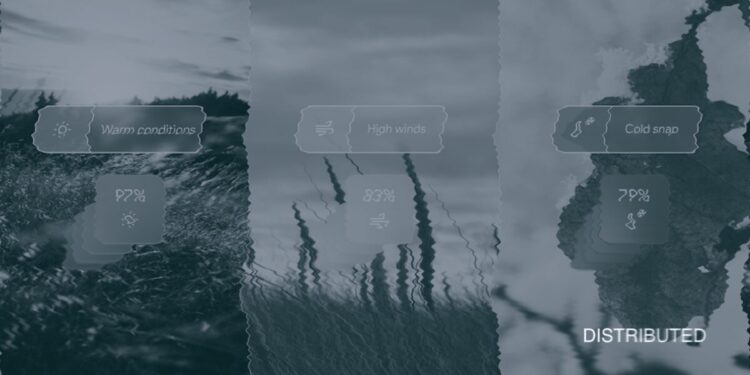Google DeepMind has introduced a new AI model to predict weather and natural disaster risk 15 days before. This new model, called GenCast, can generate multiple weather pattern predictions with state-of-the-art accuracy.
Google confirmed the news in a white paper published in Nature, a British scientific journal. “Today we present GenCast, our new high resolution (0.25°) AI ensemble model. GenCast provides better forecasts of both day-to-day weather and extreme events up to 15 days in advance”, the company stated in a blog post.
Scientists have been using AI to accurately predict weather phenomena for many years. These models traditionally generated a single forecast based on previous weather patterns. Additionally, these forecasts were reliable for up to a week at most.
See Related: Bitcoin Mining Hashrate Plunges 20% As US Miners Battle Bad Weather
Diffusion Model For Forecasts
Google’s new GenCast uses a diffusion model for probabilistic ensemble forecasts. Instead of a single, deterministic forecast, this new model offers an ensemble of 50 or more predictions. According to DeepMind this reduces uncertainty and gives policy makers “a fuller picture of possible weather conditions in the coming days and weeks”.
Currently, the world’s best ensemble forecasting model is the Ensemble Prediction System or EPS. This model was developed by the European Centre for Medium-Range Weather Forecasts (ECMWF) and is used by 35 nations worldwide.
In the white paper, DeepMind tested its GenCast system against EPS in predicting global wind speed, temperature, and extreme weather events. According to DeepMind, GenCast outperformed EPS in 99.7% of the tests.
GenCast is available as an open model along with its code and weights. Additionally, Google DeepMind is set to release real-time and historical forecasts from GenCast in the near future.



